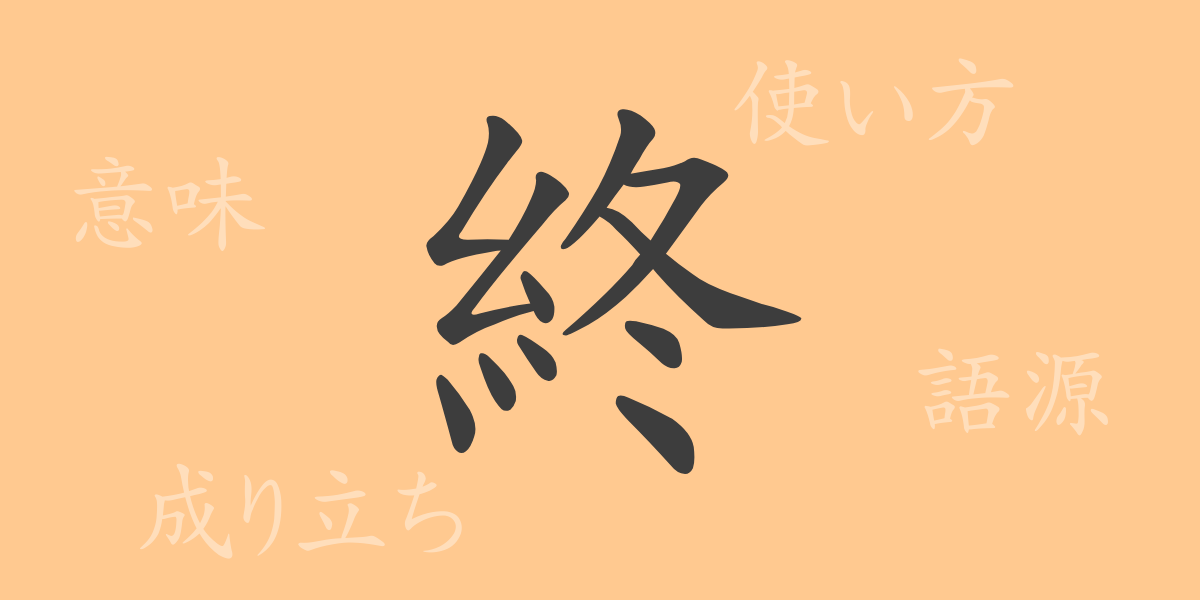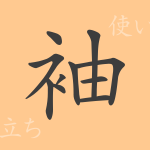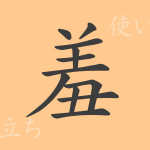Each character in the Japanese language carries deep meanings and history. “終(しゅう, shuu)” is one of the frequently used kanji in daily life, symbolizing both the end and the beginning of new things in our lives. This article explores the full scope of the kanji “終(しゅう, shuu),” from its origins and meanings to its usage and the idioms and phrases it appears in.
Origin of 終(しゅう, shuu) (Etymology)
The kanji “終(しゅう, shuu)” dates back to ancient China, where it originally represented the concept of “end” or “completion.” It developed from the image of bundling and tying threads, symbolizing the conclusion of events. This character came to signify the end of a period or the conclusion of a matter.
Meaning and Usage of 終(しゅう, shuu)
The primary meaning of “終(しゅう, shuu)” is “end” or “finish.” It denotes the end of something or the conclusion of a period. It is used in various contexts, such as the verbs “終わる(おわる, owaru)” and “終える(おえる, oeru),” as well as nouns like “終了(しゅうりょう, shuuryou)” (completion) and “最終(さいしゅう, saishuu)” (final).
Readings, Stroke Count, and Radical of 終(しゅう, shuu)
The kanji “終(しゅう, shuu)” has multiple readings, which vary based on context.
- Readings: The on’yomi (音読み) reading is “シュウ(しゅう, shuu),” and the kun’yomi (訓読み) readings are “おわる(owaru)” and “おえる(oeru).”
- Stroke count: The kanji “終(しゅう, shuu)” has 11 strokes.
- Radical: The radical is 糸部(いとへん, itohen), indicating its relation to threads.
Idioms, Phrases, and Proverbs Using 終(しゅう, shuu)
There are numerous idioms, phrases, and proverbs in Japanese that include the kanji “終(しゅう, shuu).” Here are some examples:
- 終始一貫(しゅうしいっかん, shuushi ikkan): Maintaining consistency from beginning to end.
- 終日(しゅうじつ, shuujitsu): All day long, from morning to night.
- 終生(しゅうせい, shuusei): Lifelong, throughout one’s life.
- 終焉(しゅうえん, shuu’en): The end of something, its conclusion.
- 終わり良ければ全て良し(おわりよければすべてよし, owari yokereba subete yoshi): A proverb meaning that if the outcome is good, the minor mistakes in the process do not matter.
Conclusion on 終(しゅう, shuu)
The kanji “終(しゅう, shuu)” plays a vital role in our lives, marking the end of one phase and the beginning of another. From its origins to its modern usage and the rich idioms and phrases it appears in, the depth and breadth of this character highlight the intricacy of the Japanese language. The connections “終(しゅう, shuu)” forms in our words hold more than just literal meaning, playing a significant role in the cultural and traditional context as well.

























